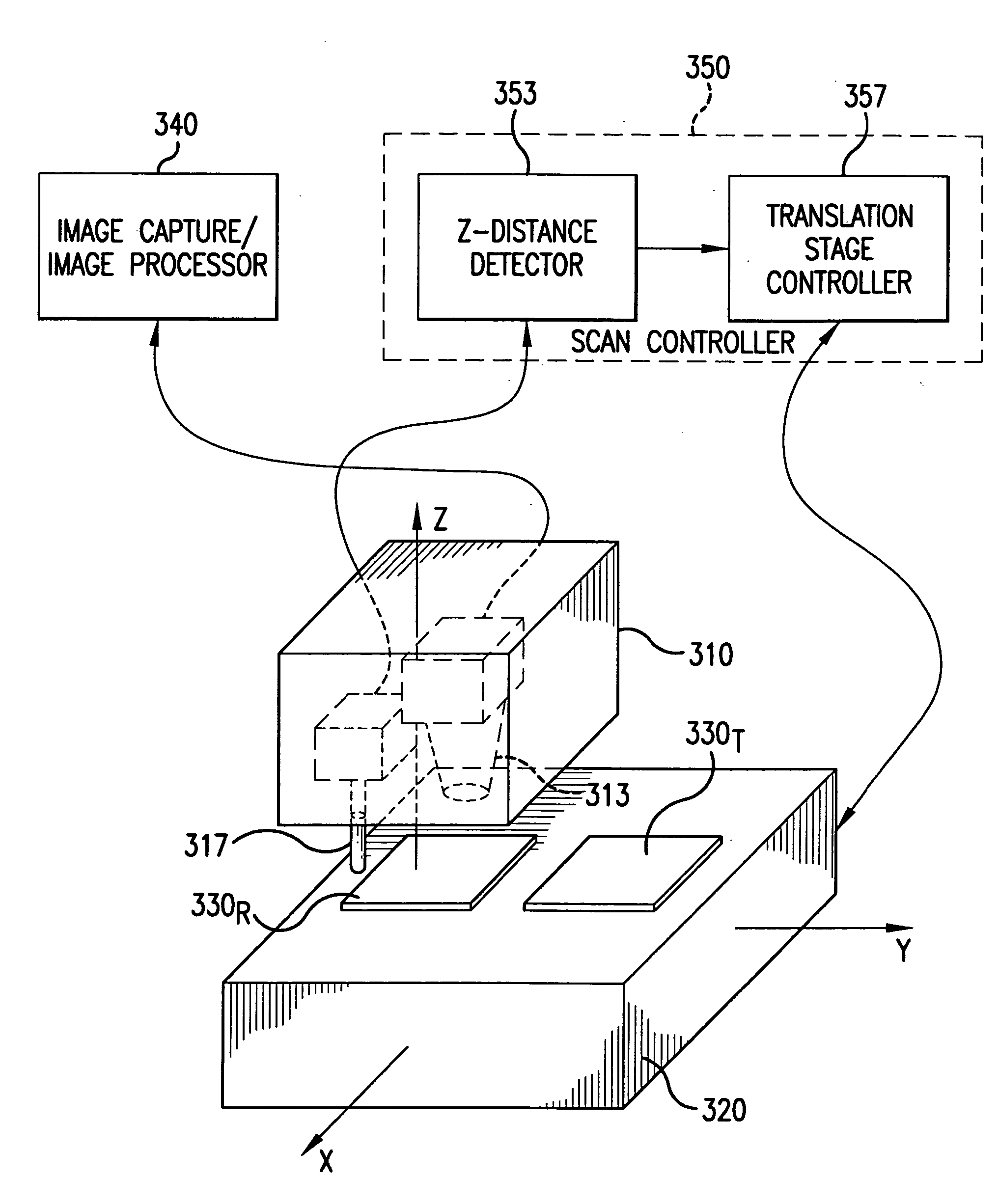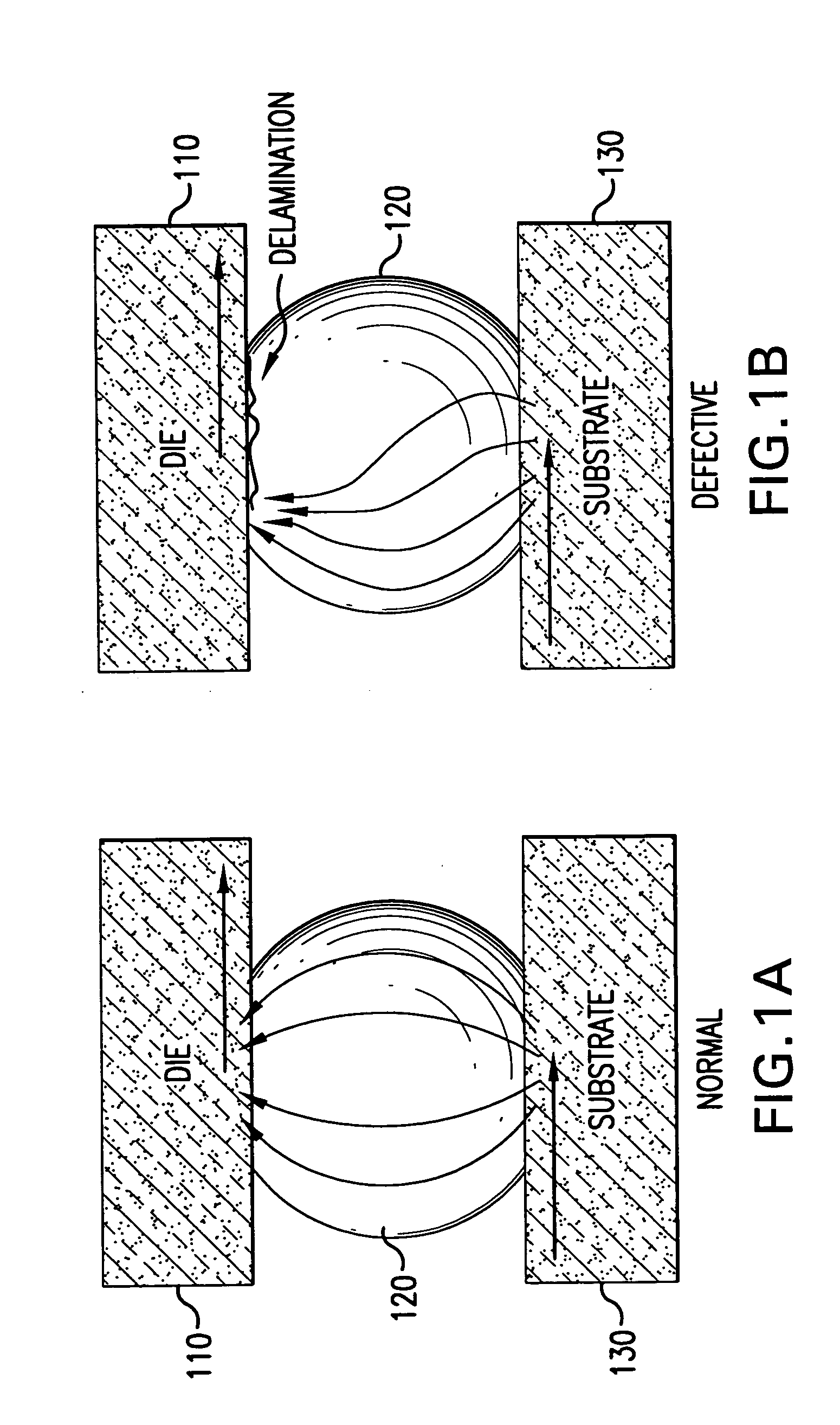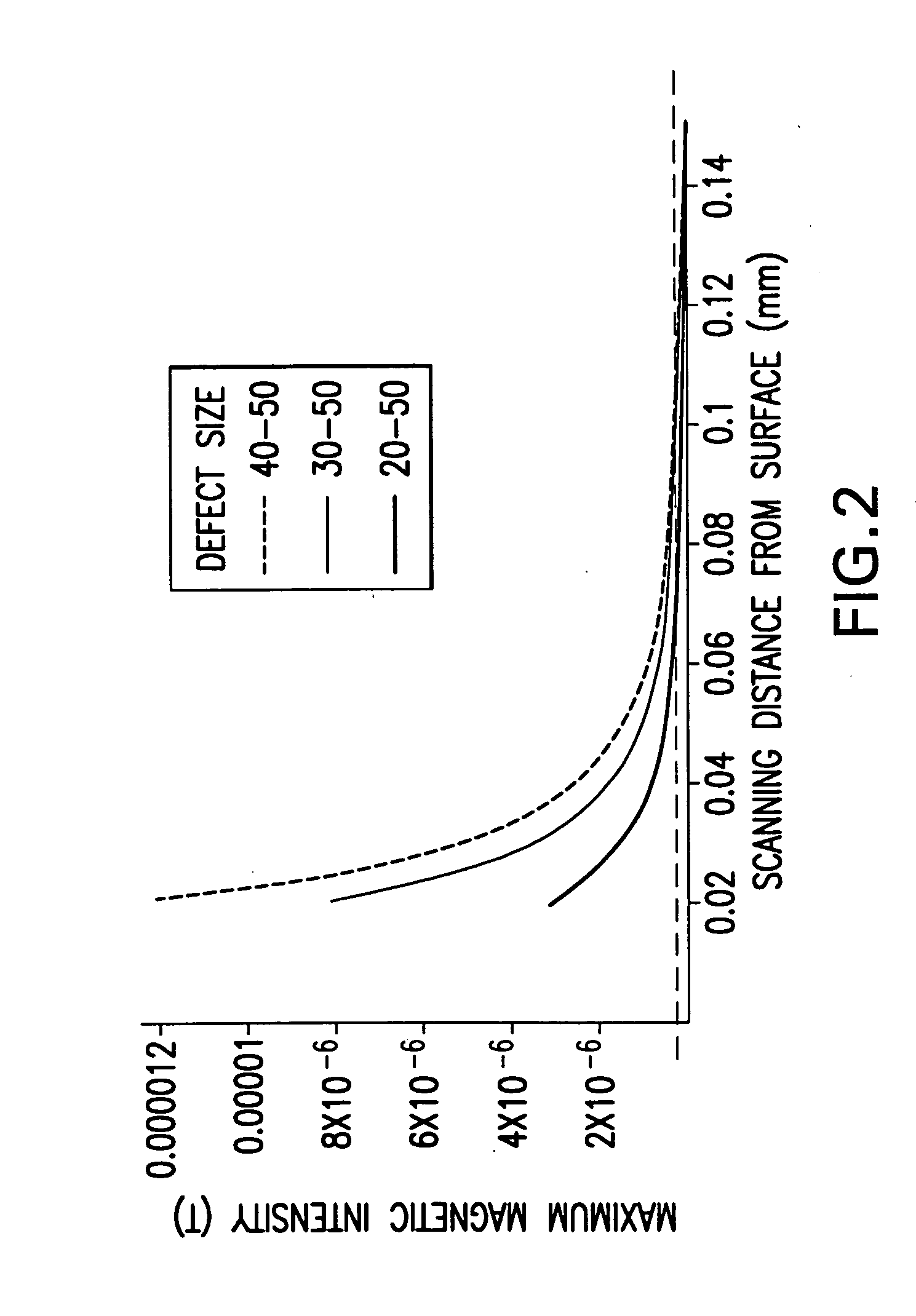Fault isolation of circuit defects using comparative magnetic field imaging
a technology of comparative magnetic field imaging and fault isolation, applied in the direction of instruments, electrographic processes, material magnetic variables, etc., can solve the problems of cracking signal traces, affecting the localization of circuit defects, and increasing the impedance of signal lines to beyond the designed specification
- Summary
- Abstract
- Description
- Claims
- Application Information
AI Technical Summary
Problems solved by technology
Method used
Image
Examples
Embodiment Construction
The method of the present invention constitutes a novel approach to isolating circuit defects, such as high resistance (HR) defects, using current imaging and comparative image analysis. Current imaging is based on the measurement and spatial mapping of the magnetic field generated by current carried in the structures of a device-under-test (DUT). Comparative image analysis identifies local differences between images. By way of the precise current imaging and subsequent comparative image analysis, the present invention attains localization of circuit defects to within tens of microns.
As is well known, the characteristic impedance of a signal line changes at geometric transitions in the line. An HR defect may manifest itself as such a geometrical change such as through regions of delamination, cracks, voids, etc. HR defects may also result from improper processing of materials during integrated circuit construction. Such processing failures may affect the conductivity in the regio...
PUM
 Login to View More
Login to View More Abstract
Description
Claims
Application Information
 Login to View More
Login to View More - R&D
- Intellectual Property
- Life Sciences
- Materials
- Tech Scout
- Unparalleled Data Quality
- Higher Quality Content
- 60% Fewer Hallucinations
Browse by: Latest US Patents, China's latest patents, Technical Efficacy Thesaurus, Application Domain, Technology Topic, Popular Technical Reports.
© 2025 PatSnap. All rights reserved.Legal|Privacy policy|Modern Slavery Act Transparency Statement|Sitemap|About US| Contact US: help@patsnap.com



